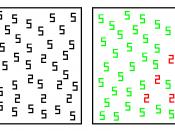Many of us would believe that social expectations, dominant paradigms and social interaction influence our sense of self. Social interaction provides a basis for comparison, which distinguish between others and I (the principle of 'how can we know what we are, without knowing what we are not?'). Social forces directly influence the way in which we view ourselves (e.g the appearance of our bodies). An extreme view, social constructionism, holds that the self is merely a 'set of social roles and pressures'.
As correct as these statements may be, prima facie, they are in conflict with basic philosophical theories of the self. Generally speaking, we can divide views of the self into three categories;
physicalism/materialism (a physical self)
dualism (physical and nonphysical)
idealism (nonphysical).
I assume social forces to be nonphysical - there is certainly nothing to suggest any physical dimension to the social forces (except how social ideals are communicated).
If social forces help to construct the self, and social forces are nonphysical, then the self must be nonphysical - conflicting with both physicalism and dualism. I believe that this line of reasoning is invalid, due to a misunderstanding of exactly what we mean by 'self'.
I find is necessary to acknowledge 'self image', which I define as the way you perceive the self . We all have some conception of the kind of person that we are, how we appear etc. which is not always in agreement with reality. Our actions are affected by this 'self image' -e.g. if we believe our self to be attractive, we behave in a different manner than if we considered our self to be ugly. I will assume that social forces do play a role in shaping how we think about our self, as well as our...


